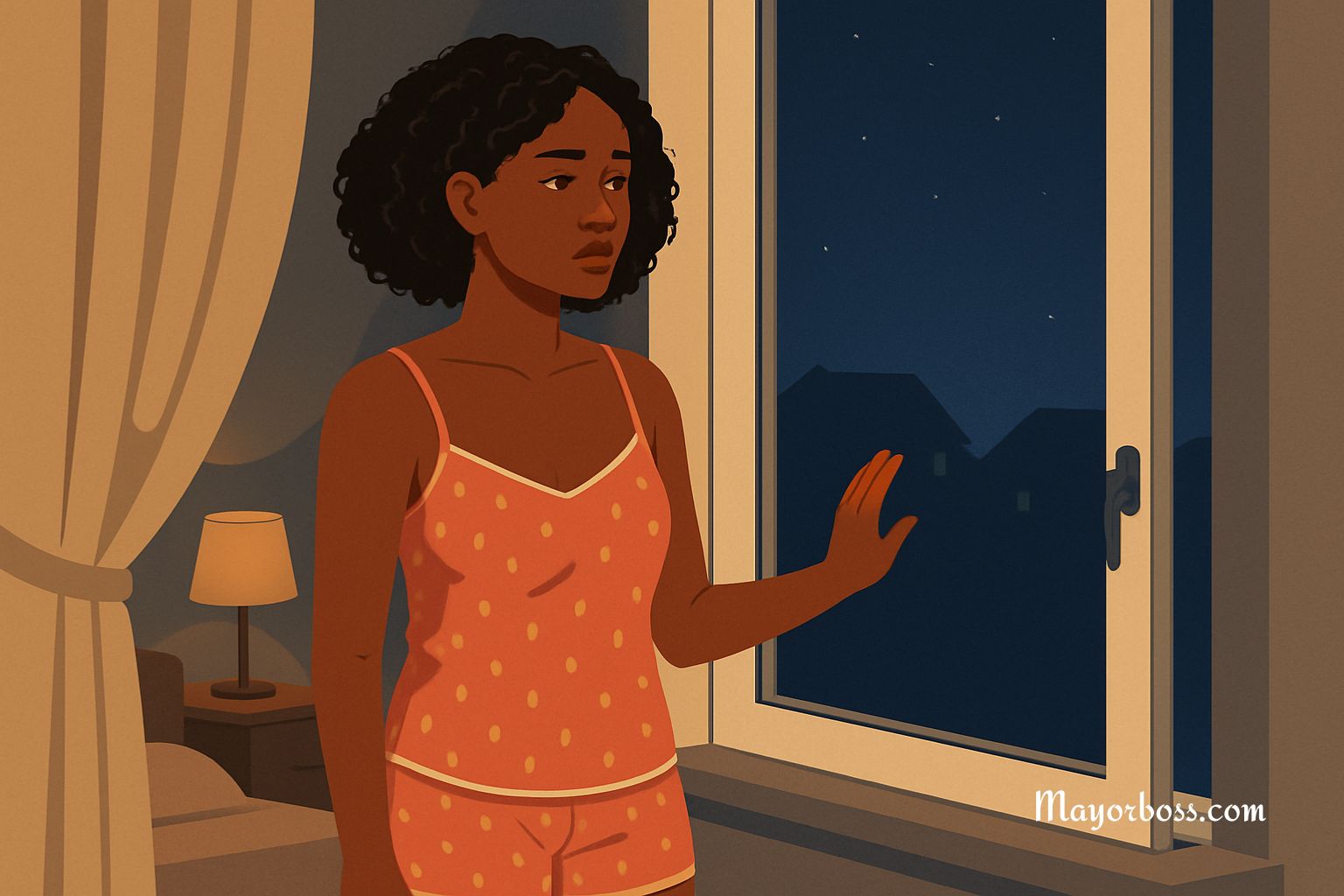The Dangers of Sleeping with Your Window Open During Summer Nights
Sleeping with the window open, even during summer, may seem refreshing, but studies show it can harm your health. Experts now recommend sleeping with windows closed at night to prevent allergies, respiratory problems, poor sleep quality, and exposure to outside risks. Fresh air is important, but nighttime ventilation is not as harmless as many believe.

Why Do People Sleep with the Window Open?
Many people find comfort in fresh air. The idea that an open window will bring a gentle breeze, cool down a room, and help you sleep better is widespread. For years, this has been a common bedtime routine, especially during warm months. Some believe it reduces stuffiness and keeps indoor air healthy. But is this really the best choice for your health?
Why You Shouldn’t Leave Windows Open At Night
In 2020, researchers at the Johannes Gutenberg University in Mainz published a study that changed the way many experts think about nighttime ventilation. They found that leaving your window open at night does not necessarily improve sleep. In fact, it may do the opposite.
The study showed that outdoor air at night can contain pollutants, allergens, and even harmful bacteria. These particles can enter your bedroom and affect your breathing while you sleep. As a result, people who sleep with their windows open may actually wake up feeling more tired, congested, or unwell.
Increased Risk of Allergies and Respiratory Issues
Allergies are a major concern, especially in the spring and summer. Pollen, dust, mold spores, and other irritants are more common during warm weather. When you leave your window open, these tiny particles can easily drift inside. They settle on your bedding, clothing, and skin.
Breathing in these allergens can cause sneezing, a runny nose, itchy eyes, coughing, and even trigger asthma attacks. For people with existing respiratory problems, such as asthma or chronic bronchitis, open windows at night can make symptoms worse. Even those without a history of allergies may notice new symptoms after sleeping in a room with open windows.
Poor Sleep Quality
Many people think a cool breeze improves sleep, but the truth is more complex. Outdoor noises, changes in temperature, and air movement can actually disturb sleep cycles. The body needs a stable environment to rest deeply. Sudden noises from cars, animals, or even the wind can interrupt your sleep without you even realizing it.
Temperature swings are also a problem. The temperature may drop quickly overnight, especially in the early morning hours. Your body can become too cold, leading to muscle stiffness, headaches, or even illness.
Research has shown that a steady, comfortable room temperature—between 18°C and 21°C (64°F to 70°F)—supports better sleep. If your window is open, the room may become too cold or too hot, leading to restless nights.
Exposure to Outdoor Pollution
Cities and towns have higher levels of air pollution at night due to traffic, industrial activities, and even increased use of air conditioners. Fine particles, smoke, and chemical pollutants can enter through an open window. Long-term exposure to these pollutants has been linked to increased risk of heart disease, lung conditions, and even cancer.
Even in less urban areas, nighttime brings different risks. Mosquitoes and other insects are more active, and their bites can disturb your sleep and transmit diseases.
Increased Security Risks
Leaving windows open at night can also pose a safety risk. Unlocked or open windows may attract unwanted attention, making your home more vulnerable to theft or intrusion. Even in safe neighborhoods, this is a real concern that should not be ignored.
What Should You Do Instead?
The goal is to sleep in a room with clean, comfortable air, without exposing yourself to unnecessary risks. Here are practical steps you can take:
- Ventilate before bedtime. Experts recommend opening your windows for 15-30 minutes in the evening to let in fresh air, then closing them before going to bed.
- Use air purifiers. High-quality air purifiers with HEPA filters can help remove dust, pollen, and pollutants from the air.
- Control temperature. Use a fan or air conditioner to keep your room cool without opening the window.
- Keep your bedroom clean. Wash bedding regularly and vacuum carpets to reduce dust and allergens.
- Install window screens. If you must open a window, use screens to keep insects out.
Takeaway
While it might feel natural to open a window at night for fresh air, science suggests this habit is not as harmless as many believe. Allergens, pollution, noise, temperature changes, and safety concerns all come into play. Experts now recommend sleeping with windows closed at night, even in summer, to protect your health and improve your sleep quality.
FAQs
1. Can sleeping with the window open cause you to get sick?
Yes, exposure to cold air, allergens, or pollutants can lead to symptoms like congestion, coughing, and even worsen respiratory conditions.
2. Is it ever safe to sleep with the window open?
If you live in a rural area with low pollution and low pollen, it may be safer. However, experts still recommend ventilating the room before bedtime and closing the window before sleep.
3. How can I improve air quality in my bedroom without opening the window?
Air purifiers, regular cleaning, and ventilating the room before bed are effective ways to keep the air clean without the risks.
4. Does sleeping with the window open really affect sleep quality?
Yes, studies show that noise, temperature shifts, and exposure to allergens from open windows can disturb sleep and reduce its quality.
5. What is the ideal bedroom temperature for good sleep?
Most experts recommend keeping the bedroom between 18°C and 21°C (64°F to 70°F) for optimal rest. Use fans or air conditioning to control the temperature instead of opening the window.






